Search Results for Tag: ice
Mining fears decide Greenland vote
Interesting times for the “ice island“. The Greenlanders have voted for a change of government amidst concern that the incumbent government was opening the country too fast to foreign mining companies.
Alequa Hammond’s Siumit party won 42 percent of the votes, up from 26.5 percent. Kuupik Kleists’ Inuit Ataquatigiit took 34.4 percent compared to 43.7 last time. Hammond, who would be the first woman prime minister of Greenland if she successfully forms a coalition with a smaller party, campaigned on a pledge to tax foreign mining companies.
Climate change is opening up opportunities for the mining of rare earth and other raw materials in Greenland, as well as oil and gas exploration. I visited the island in 2009 to report on the effects of climate change. At that time, I could already sense the dichotomy between the desire to gain revenue from mining to fund ultimate independence from Denmark on the one hand, and concern that the changing climate was making traditional Inuit lifestyles more difficult and potentially opening the way for environmentally harmful commercial activities on the other.
Hammond, an Inuit woman who was educated in Montreal before returning to Greenland and working in tourism, told the online edition of the weekly newspaper Sermitsiaq “Too much secrecy surrounding mining projects and problems in the fishery sector, as well as a lack of construction outside Nuuk (the capital), determined the outcome”. There had been a lot of concern about proposals being discussed for a company to bring 2,000 Chinese workers to the island, with a population of just 57,000, to set up a mining venture. China is becoming increasingly interested in Greenland and the Arctic as a whole, both because of its rich mineral resources and the opening of faster shipping routes between Asia and Europe and North America.
It remains to be seen to what extent protecting the environment will have priority over economic considerations as Greenland develops further.
The Arctic Council will be meeting in Kiruna, Sweden in May, the last meeting before Canada takes over the chair. China’s application for observer status will be on the agenda. Hammond says she could support the application but would take a more critical look at Chinese investments.
Interesting times ahead. Watch this space. Related stories to catch up with:
Polar ice sheets melting faster than ever
Business opportunities boom in the Arctic
Sea levels rising faster than expected
China’s Arctic ambitions spark concern
Scientists raise Greenland climate threat
UNEP concerned about Arctic melt
The UN Environment Programme (UNEP) has issued a warning that last year’s record shrinkage of the Arctic sea ice highlights the risks climate change brings for the planet. The annual review of the state of the world’s environment was presented in Nairobi this week during an ongoing high-level ministerial meeting.
UNEP said the summer sea ice in the Arctic had covered a record low area of 3.4 million square kilometers, 18 percent below the previous recorded minimum in 2007 and 50 percent below the average for the 19802 and 1990s. The report also mentions melting land ice in Greenland and melting permafrost in high latitudes. The figures are not new, but it is significant that UNEP should highlight the Arctic and the fact that no action is being taken in reaction to the evidence which clearly shows climate-change-induced melting.
“Changing environmental conditions in the Arctic, often considered a bellwether for global climate change, have been an issue of concern for some time, but as of yet this awareness has not translated into urgent action”, UNEP Executive Director Achim Steiner said presenting the report on Monday. He warned that the rush to extract oil and gas from the Arctic seabed as the ice retreats could lead to even higher emissions of greenhouse gases.
“What we are seeing is that the melting of ice is prompting a rush for exactly the fossil-fuel resources that fuelled the melt in the first place”, said Steiner.
Now this is a sentiment Greenpeace, WWF Arctic and other groups have been expressing for years. Here we have it from the world’s key environment watchdog.
“The rush to exploit these vast untapped reserves has consequences that must be carefully thought through by countries everywhere, given the global impacts and issues at stake”.
Meanwhile, this week, Russian President Vladimir Putin signed the country’s “strategic program on Arctic development up to 2020. Enough said?
For anyone who wants to catch up on the Arctic development story, here are a few links.
Polar ice sheets melting faster than ever
Business opportunities boom in the Arctic
Sea levels rising faster than expected
China’s Arctic ambitions spark concern
Energy giants cooperate for Arctic resources
“We are living in an ice-dependent world” (Iceland’s President)
During my recent visit to Sustainability Week in Abu Dhabi, I was interested to meet the President of Iceland, Ólafur Ragnar Grímsson. He gave one of the keynote speeches at the World Future Energy Summit and was also on the Jury for the prizes presented as part of the Zayed Future Energy Prize to initiatives around the world to promote sustainability through renewable energy in different parts of the world.
I asked him how he had come to be involved so closely with Abu Dhabi, the icy north working with the desert oil state. The link goes back to an Abu Dhabi delegation visiting Iceland 8 years ago to talk about using clean energy. Since then, he finds it fascinating and encouraging to see how the Gulf state is turning itslf into “one of the primary locations in the world for dialogue and cooperation on a clean energy future.”
But the message I’d really like to share with the Ice Blog community is the one about the undeniable connections between what’s happening in the Arctic and what’s happening in the rest of the world. President Grímsson explained his view to me at a reception after the prize-giving ceremony.
We live in an ice-dependent world, says Iceland’s President
In a nutshell, he says one of the key results of scientific research is recent years is that the Arctic plays a major role in influencing weather and other developments around the world, and that fact that the ice is melting fast. Let me quote him:
“I think the melting of the ice is really the frightening message. Climate change is a difficult word, because somehow it is not concrete. The melting of the ice is something that everybody understands.”
A climate-friendly future? Impressions of Masdar City
Today I paid a visit to Masdar City 17km from the centre of Abu Dhabi, set up in 2006 with the aim of being “one of the most sustainable cities in the world”, according to Masdar. Masdar was set up as a commercially driven renewable energy company and a strategic government initiative. The city is powered entirely by renewable energy and the buildings are designed to maximize energy efficiency.
This is an impression of the iconic architecture of Masdar around a pleasantly cool courtyard. (The modest gentleman on the couch is Sultan Aal Ali, in charge of Masdar’s development).
In the years since the vision of a sustainable, purpose-built city at the heart of a desert state was first launched, a lot of the enthusiasm seemed to have gone out of the project, at least in the view of a lot of media. That is one reason why I was keen to have a look at what is happening there today. I will be writing an article for our website on this in the next couple of weeks, so for today I’d just like to share some pictures, thoughts and impressions with you.
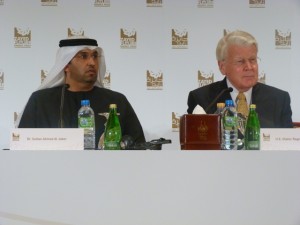
Dr. Sultan Ahmed Al Jaber, Director General of the Zayed Future Energy Prize with President Grimsson
Incidentally, as part of the World Future Energy Summit and at the ceremony announcing the 2013 Zayed Future Energy Prize here last night, the ICE connection was brought up again by the President of Iceland, Olafur Ragran Grimsson.
He was chairman of the prize jury and was talking about those connections between the record melt of the Arctic ice and the push for renewables here in the oil-rich Gulf region. Yes! The message seems to have arrived on the global stage.
Anyway, to Masdar City:
Using the sun to cool Masdar. Normally, air-conditioning would be one of the highest electricity-guzzlers and emissions producers. The architecture uses window-to-wall ratio, insulating building materials, shading and other means to keep buildings cool – and uses sun power to do the rest.
A modern version of a cooling wind-tower, to bring cold air to the courtyard. These towers have a long tradition in the region. They look great as well.
Hi-tech lab for nano-technology research at the Masdar Institute. The city is developing around the university complex.
This is the centre-piece of the brand-new 2nd phase of the Masdar Institute. The city is a work in progress. Today I was one of the first journalists to be allowed into the new development without safety helmet and boots for construction site safety.
Beautiful places, beautiful people! One of my guides from Masdar’s communications department against the background of a wall constructed from desert sand. Thanks!!!
Driverless public transport, using magnetic technology. Felt a little like sci-fi, but definitely got us across the complex. Not sure if it will catch on, but it was quite an experience.
I could go on all night, but will save the rest for a later date. There is plenty of building work going on. The German company Siemens will soon be moving in to its new headquarters in Masdar. Other companies are also planning to move in. The International Renewable Energy Association IRENA will ultimately have its headquarters here.
So far, students are the only residents. Seems a bit extravagant, which is one of the criticisms levelled at the eco-city in the past. But from what I saw today, things seem to be finally moving forward. EU Commissioner Connie Hedegard, who also visited Masdar today, told me Masdar was “leading by example”. She’s very positive about what’s happening in the region in terms of the growing interest in renewables. There’s a long way to go, she says – but stresses that applies to all of us.
Still seats available at this Masdar café today.
Polar bear in Abu Dhabi

Abdallah al Shami sees a clear connection between what happens in the Gulf and the melting Arctic – and vice-versa
Yes, the ice-blogger has indeed found a polar bear in Abu Dhabi. I was standing in front of ‘Wendy’, an eco-art creation by US-based artists and architects Marc Kushner and Matthias Hollwich, set up in downtown Abu Dhabi as part of Sustainability Week, when I was handed a magazine with a 3D picture of the climate impact icon, looking lost on a chunk of melting ice. Abdallah al Shami is the project editor of a spezial edition of the Abu Dhabi culture magazine Shawati in conjunction with Masdar to mark this week dedicated to sustainability, clean energy and water.
The picture showcases what our actions can do to the environment, he says. We can save it – or it will go. ‘We wanted to have a global message, not just address local issues’, says Abdallah. ‘With all the ice that has been melting in the Arctic, Abu Dhabi wants to address global issues and their interconnections’. And those connections between our actions anywhere in the globe and what’s happening in the Arctic are exactly why the ice blog is coming to you from this part of the world this week. Couldn’t have put it better myself, Abdallah.



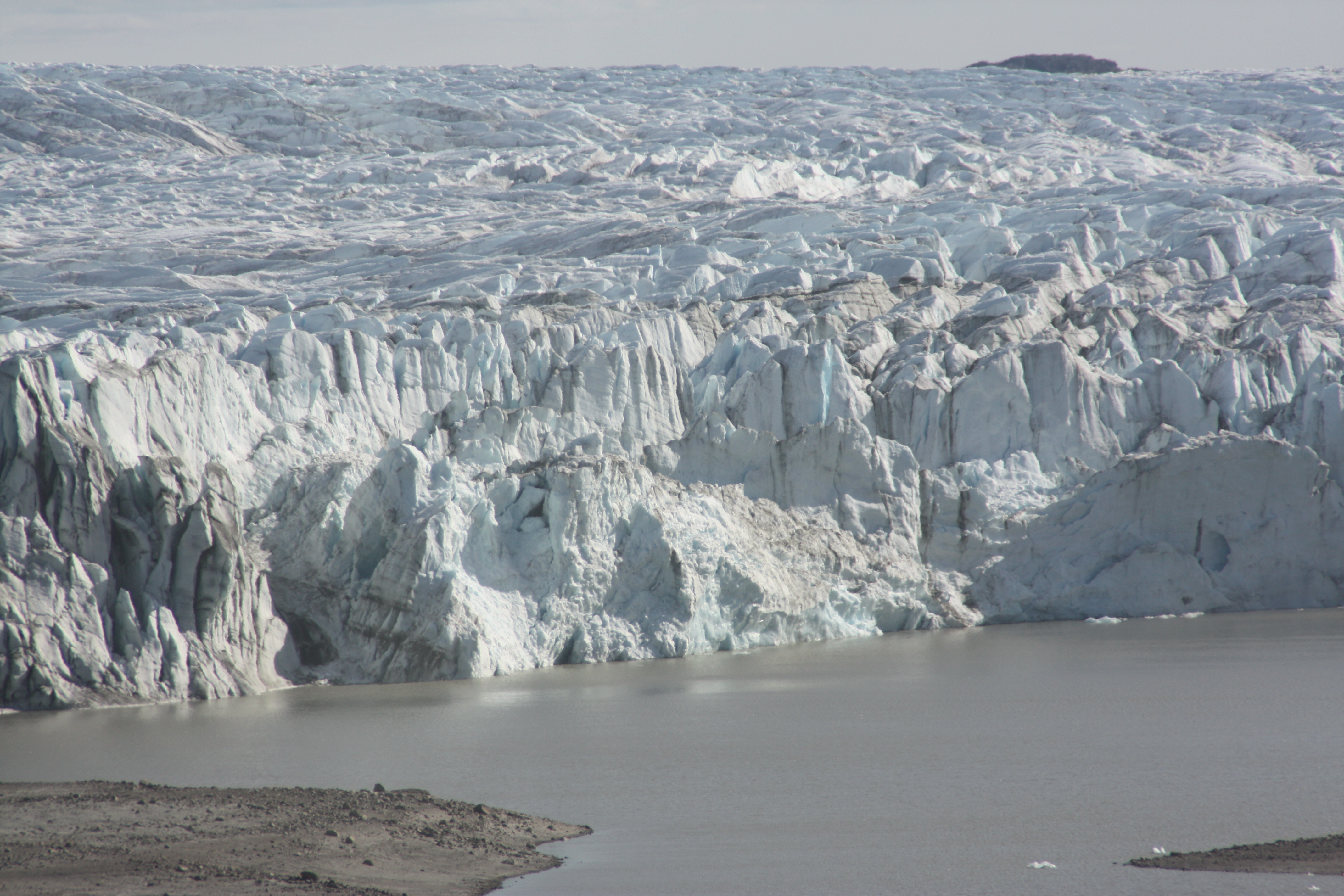

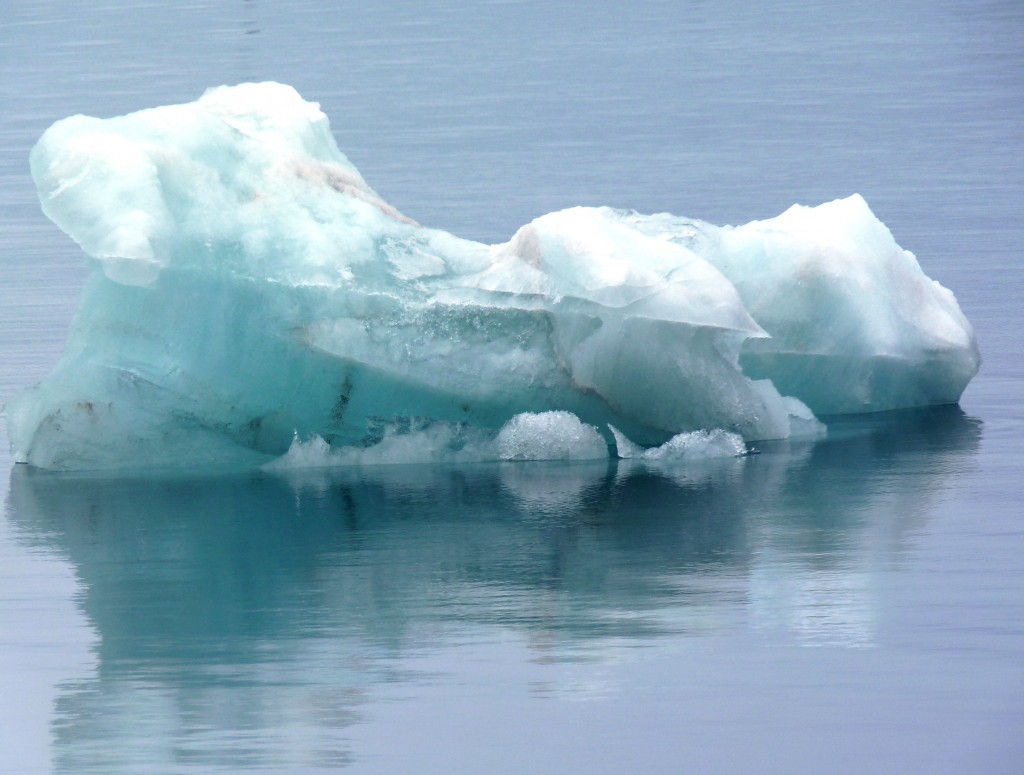
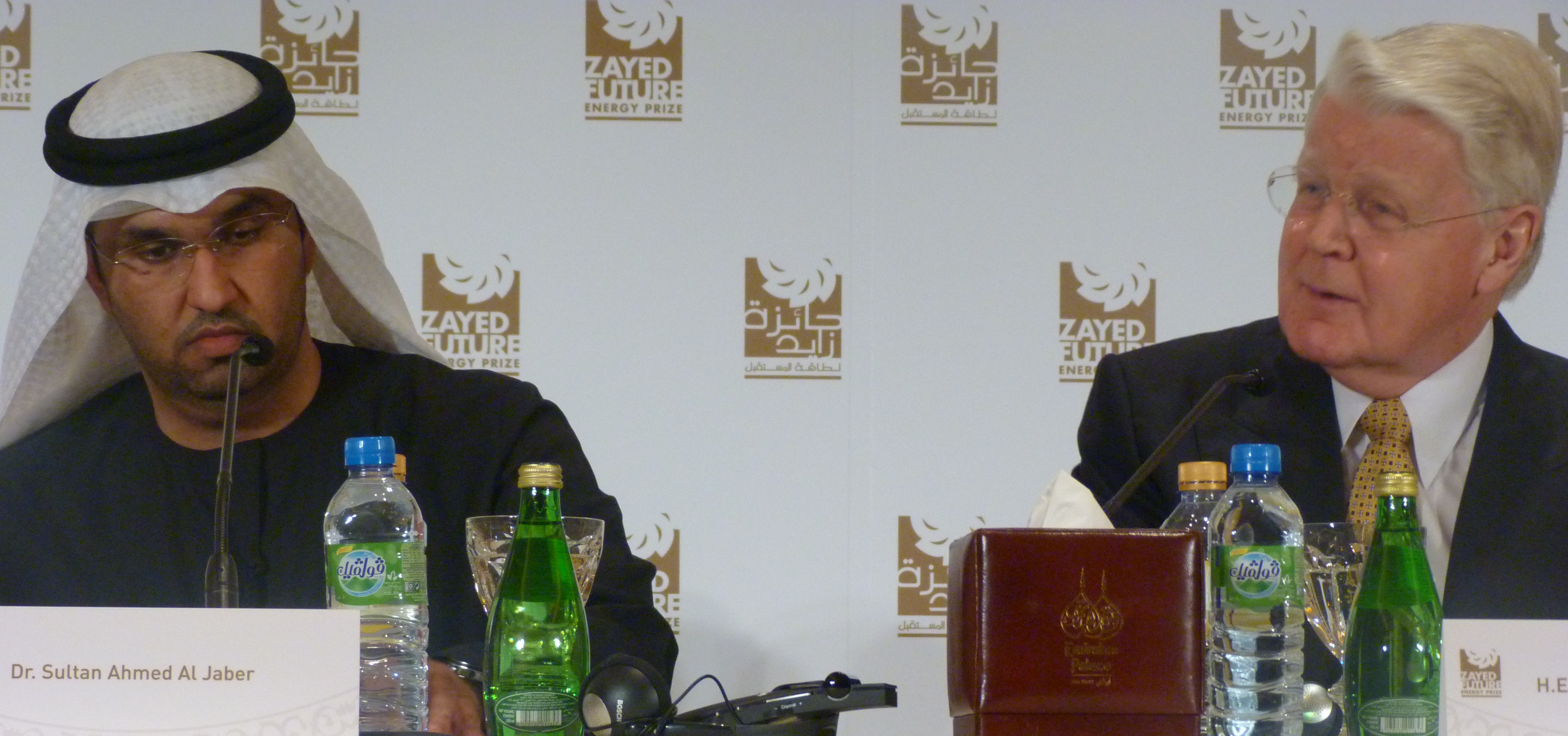
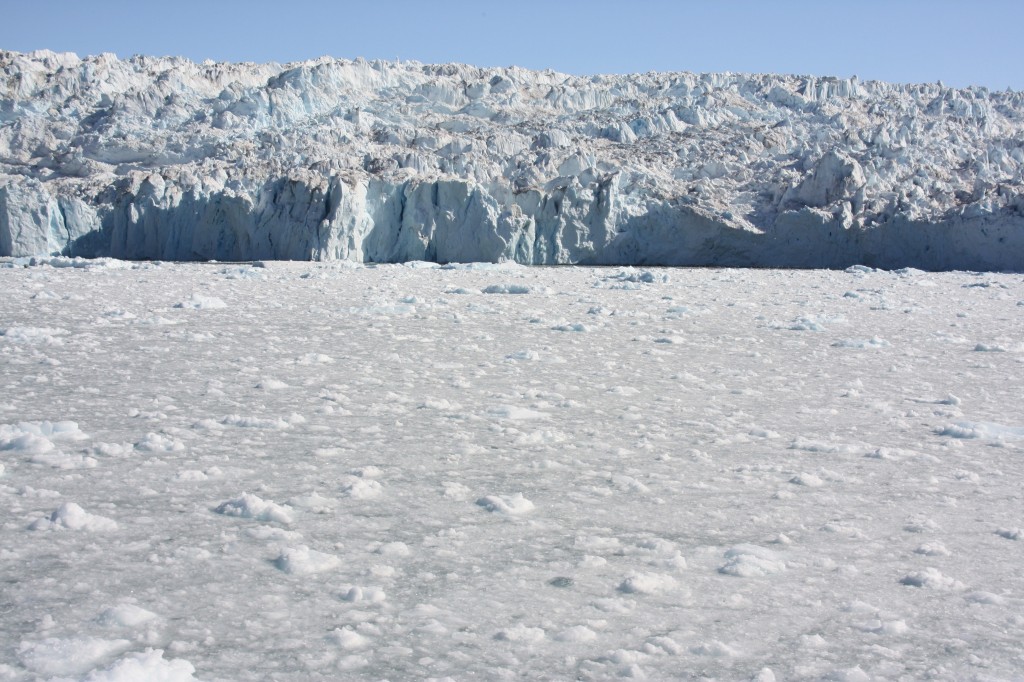
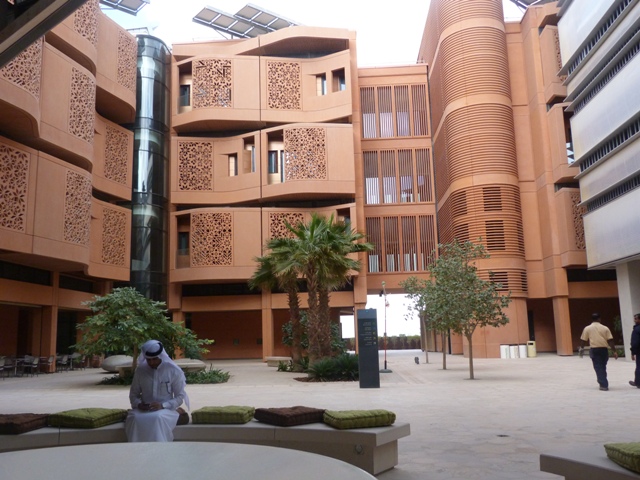
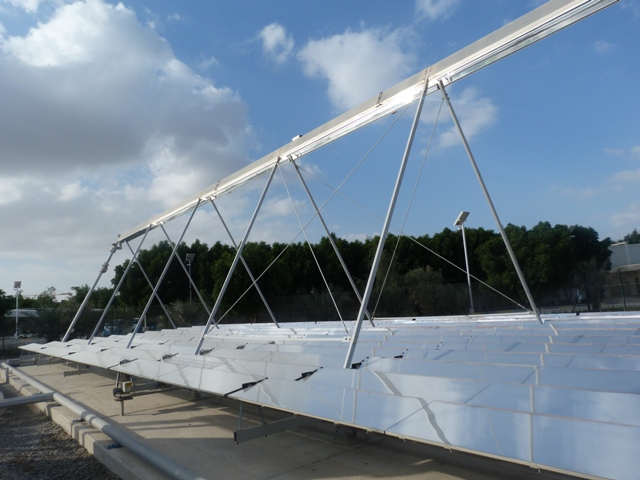
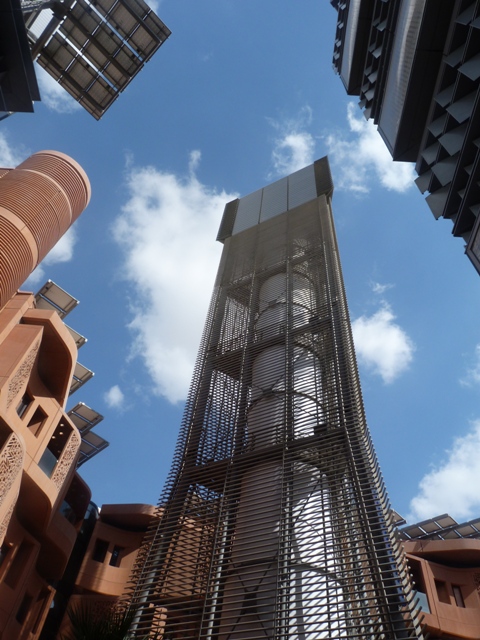
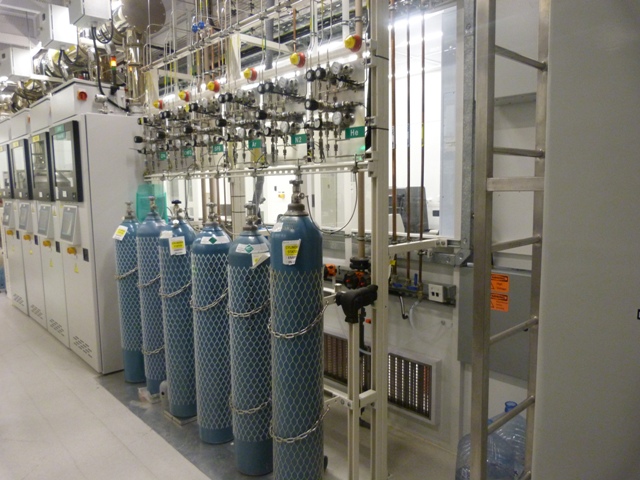
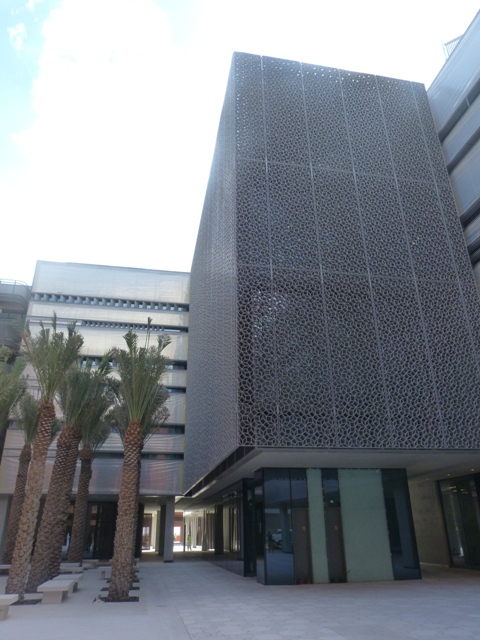
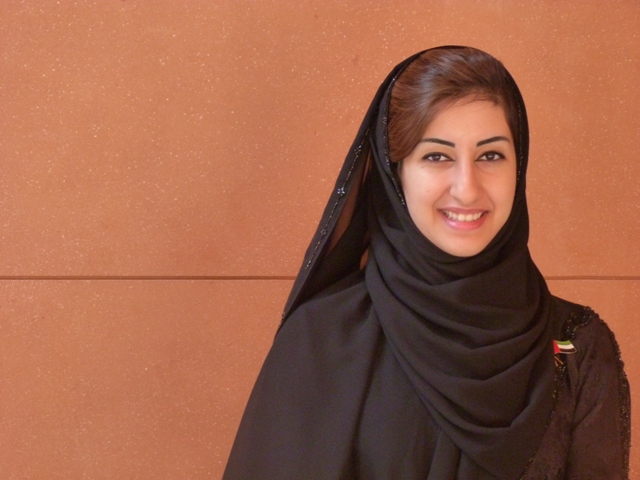
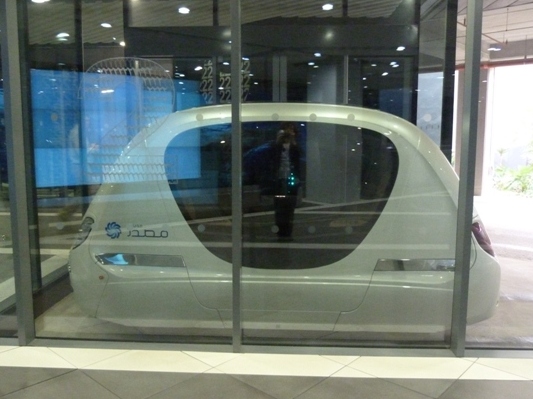
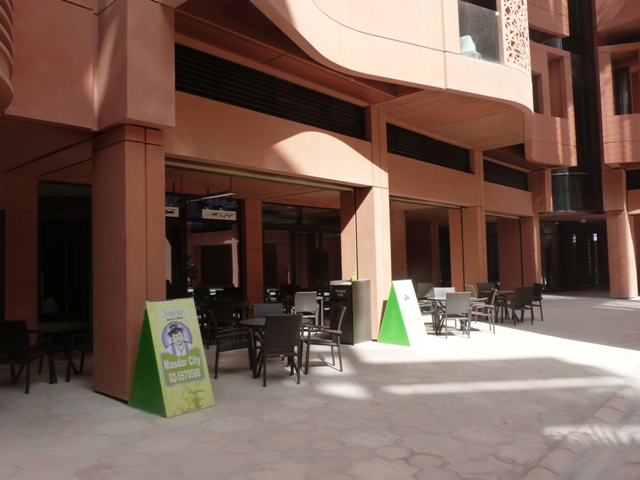
















Feedback